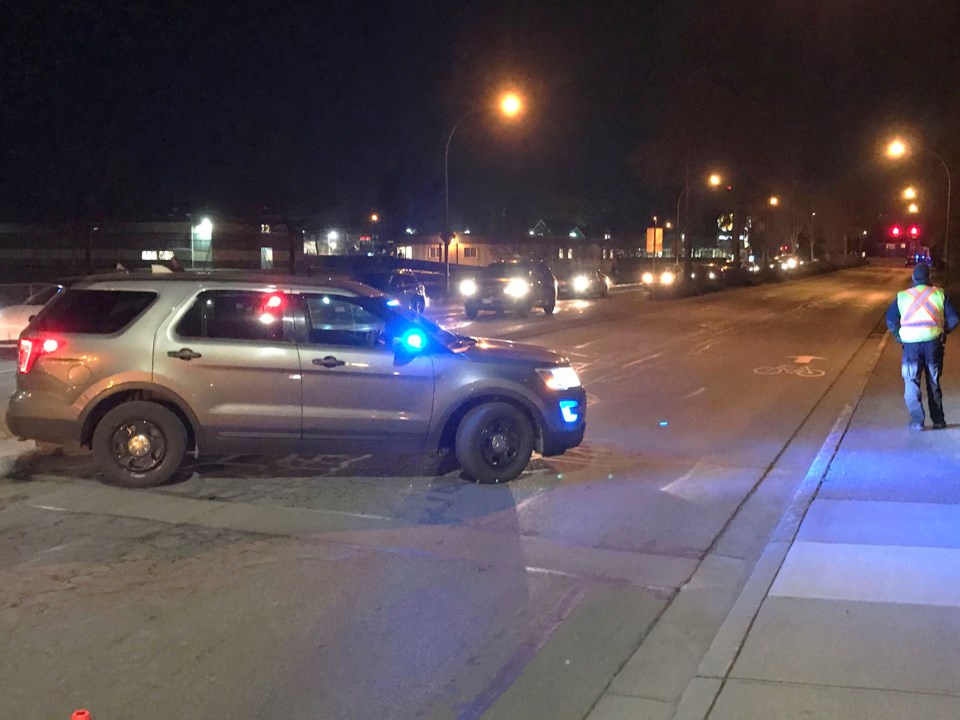Improving pedestrian safety is a high priority in Delta.
In an update to the Delta Police Board Nov. 24, Chief Neil Dubord said this year there have been three pedestrian fatalities in the city.
Those incidents occurred as interplay of all road users was identified as one of the important issues in the newest Community Safety Plan.
“We saw these tragedies happen as the weather got colder, as people started wearing more dark clothing, as drivers were less attentive because it was raining and the change of (Daylight Savings) time. There’s a number of different factors. I wanted to bring this to attention that we’re keenly aware,” noted Dubord.
According to ICBC, Nearly half (44 per cent) of all crashes with pedestrians happen between October and January.
Also in B.C., 79 per cent of crashes involving pedestrians happen at intersections.
“Obviously, we are part of Vision Zero, which means we subscribe to the philosophy that we hope for zero,” Dubord explained. “That’s our metric, zero fatalities on our roads, either by cyclists, pedestrians or people in vehicles. We’re trying to work our best through the three E’s that we’re calling. The engineering, is there engineering changes to the roads that this happens so we can make it safer? Is there enforcement we can do that will help educate the public? And, certainly education techniques that we’re using as well.”
Council last fall gave the go-ahead to spend up to $50,000 for a Vision Zero study, aimed at creating a strategy to eliminate all traffic fatalities and severe injuries.
Vision Zero is a multi-national road traffic safety project that aims to achieve a road system with no fatalities or serious injuries.
The project originated in Sweden and is gaining momentum in North America, according to an earlier Delta staff report, noting it has been embraced at the federal levels in both Canada and the United States.
One of the key differences between Vision Zero and traditional approaches to road safety is that traffic collisions are considered preventable, viewing safety as a shared responsibility between system designers, policy makers and road users through system level changes.
Dubord also noted RoadSafetyBC is also trying to utilize Public Health to see how it can help improve road safety.
He co-chairs a special committee that is working with the province on that aspect, looking at what initiatives could help protect pedestrians and cyclists.
He said there was also a significant number of pedestrian injuries three years ago, prompting the DPD at the time to purchase reflective safety straps to hand out to people as part of an ICBC program.
The department is considering participating once again, handing them out at community police stations as the cost to participate is relatively low.
Meanwhile, improvements are coming to a couple of intersections on Scott Road in North Delta.
Engineering and planning staff recently provided the Mobility and Accessibility Committee an update on a plan for intersection and sidewalk improvements at 75A Avenue at Scott Road where a high-density housing plan is to be constructed.
Sidewalk and intersection improvements will also be made at 93A Avenue at Scott Road, where a 29-storey, mixed-use development is planned.



